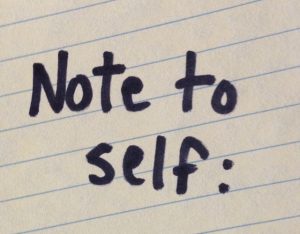Culture / Discernment / Pluralistic World / Spirituality
A few words on living the dream

The headline on the cover of Self was printed in a font clearly designed to catch our attention. “Live the Dream! Strong / Sexy / Confident.” The cover photograph was of the ballet dancer, Misty Copeland, in mid-leap looking into our eyes as we look at her. She is identified in another headline, smaller but impossible to miss: “Misty Copeland: One Badass Ballerina.” The words in both headlines fit Copeland beautifully—strong, sexy and confident is not all one would want to say about her, but they are true of her nevertheless.
Page 1 of the magazine features another full page image of Copeland along with a “Note to Self: Today is the beginning of anything you want.” “No,” I thought as I scanned the magazine. Not anything—that’s the sort of mindless ditty that seems empowering only if you don’t think about it. And if you really believe it you’ve bought into a myth that is certain to disappoint. Today can be the beginning of something important, or good, or stretching (to keep with the Misty Copeland theme), but anything? No, not even close.
It’s not that I’m against motivational quotes, a thought that empowers us to step out of the comfort zone that limits our ability to flourish as a person. It’s nice, however, when they are true as well as motivational. So, I thought of some alternatives, each one a quote by someone I respect:
Note to Self: “Did I offer peace today? Did I bring a smile to someone’s face? Did I say words of healing? Did I let go of my anger and resentment? Did I forgive? Did I love? These are the real questions. I must trust that the little bit of love that I sow now will bear many fruits, here in this world and the life to come” (Henri Nouwen).
Note to Self: “Knowing what must be done does away with fear” (Rosa Parks).
Note to Self: “Resolved, never to say anything at all against anybody, but when it is perfectly agreeable to the highest degree of Christian honor and of love to mankind, agreeable to the lowest humility and a sense of my own faults and failings, and agreeable to the Golden Rule” (Jonathan Edwards).
Note to Self: “Listening is about being present, not just about being quiet” (Krista Tippett).
Many of us have “Notes to Self” without realizing it—sayings that somehow were lodged in our memory, for blessing or for curse. Some are encouraging while some are not, and some we may have chosen while others were thrust into our imagination. This is one reason that many spiritual directors suggest memorizing passages of Holy Scripture—once embedded in our hearts and imaginations such texts tend to shape our thinking, feeling and doing. This also captures something of the appeal and importance of proverbs—short, pithy snippets of insight and wisdom that are so often repeated they are easily remembered. Proverbs are like poetry, using simile, word play and metaphor to make a point that is more than the words initially suggest.
“If one gives answer before hearing, it is folly and shame” (Proverbs 18:13).
“A rumor goes in one ear and out many mouths” (Chinese proverb).
“Fools show their anger at once, but the prudent ignore an insult” (Proverbs 12:16).
“Do not use a hatchet to remove a fly from your friend’s forehead” (Chinese proverb).
“Do not blame God for having created the tiger, but thank him for not having given it wings” (Indian proverb).
“Sometimes I go about pitying myself, and all the time I am being carried on great wings across the sky” (Ojibwa proverb).
But now consider the main headline: “Live the Dream! Strong / Sexy / Confident.” A lot of us may be so repelled by what we see as the glossy narcissism of Self that we automatically dismiss it. But reaction rather than discernment is a form of narcissism too, is it not?
Imagine this scenario: You have befriended a young woman who is about to be married. She is excited, but also plagued with doubts that have roots deep in her childhood. Her father mocked her looks and was critical of all she attempted, while cheering on an older brother who seemed to succeed without even trying. Her doubts have given rise to anxiety and a resurgence of acne, and you want to help. As part of that help, you might choose to design a card to be stuck to her bathroom mirror with the words in your best calligraphy: “Live the Dream! Strong / Sexy / Confident.”
“OK,” some parent might say, “I can imagine drawing that card for a friend. But I don’t think the headline of the magazine is something I’d like my 12 year old daughter imagining is the essence of what she should be aiming for in life.” Fair enough—and that suggests an exercise in discernment.

